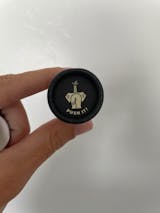Summer lovin’ had me blast, all thanks to the sun. The sun is a natural mood-booster and it’s easy to love to bask in it’s warmth and energy. Whether it’s a day at the beach, a picnic in the park, or a hike in the mountains, the sun makes people want to get outside and enjoy life. Even though we all love the sun, we also know how important it is to protect our skin from the sun’s harmful rays. But did you know that not all sunscreens are created equal and going by the SPF isn’t always the best way to find the right sunscreen for you. Here we are going to dive deeper into what SPF is and how to find the best sunscreen for your skin.
First things first, why do we need to protect our skin from the sun? Well, as much as we love basking in the sun's glory, overexposure to UV radiation can cause both short-term and long-term damage. Sunburn, premature aging, and even skin cancer are all potential risks of overexposure to the sun. Yikes! But don't worry, protecting your skin is easy with a few simple tips.
Now, let's talk sunscreen. Many of us rely on SPF to determine which sunscreen to buy, but what does SPF actually mean? SPF stands for Sun Protection Factor, and it measures how much protection a sunscreen offers against UVB radiation. But did you know that SPF only measures protection against UVB rays? That means it doesn't take into account protection against deep-penetrating UVA radiation, which can also be harmful to the skin. UVA light was previously believed to cause mostly cosmetic damage, but it’s now known to be linked to cancer, too.
Look for a sunscreen that offers broad-spectrum protection, which means it protects against both UVA and UVB rays. Oh and a higher SPF doesn't necessarily mean better protection. In fact, SPF 30 blocks about 97% of UVB rays, while SPF 50 only blocks about 98%. In 2011 the FDA suggested that sunscreens with SPF higher than 50 are “inherently misleading”. So, don't get too caught up in the numbers.
Another factor to consider is the type of sunscreen you’re using. Chemical sunscreens work by absorbing UV rays and are bad for your health and the environment. Different from mainstream sunscreens, that use chemical filters to absorb UV rays, mineral based sunscreens use physical blockers like zinc oxide and titanium dioxide. These minerals work by reflecting and scattering UV rays. They also protect against both UVA and UVB rays. Additionally, mineral based sunscreens are less likely to cause irritation or breakouts, making them ideal for people with sensitive skin. And if you’re worried about that white cast that some mineral sunscreens can leave behind, don’t fret! There are plenty of tinted mineral sunscreens on the market that blend seamlessly into all skin tones.
In conclusion, protecting your skin from the sun can be easy when you know what to look for in a sunscreen. Keep in mind SPF isn’t everything. It’s important to look for a sunscreen that offers broad-spectrum protection against both UVA and UVB rays. Moreover, it's advisable to choose a mineral-based sunscreen that contains ingredients such as zinc oxide, which work by reflecting and scattering UV rays. Mineral-based sunscreens are often the best sunscreens for people with sensitive skin or those who are concerned about the environment. They are less likely to cause skin irritation, and they are also less likely to contain ingredients that are harmful to your health and to coral reefs. So remember, when protecting your skin, it's essential to consider not only SPF and be mindful of the ingredients in your sunscreen. Now go reflect some rays, make some waves, and let your worries melt away!






